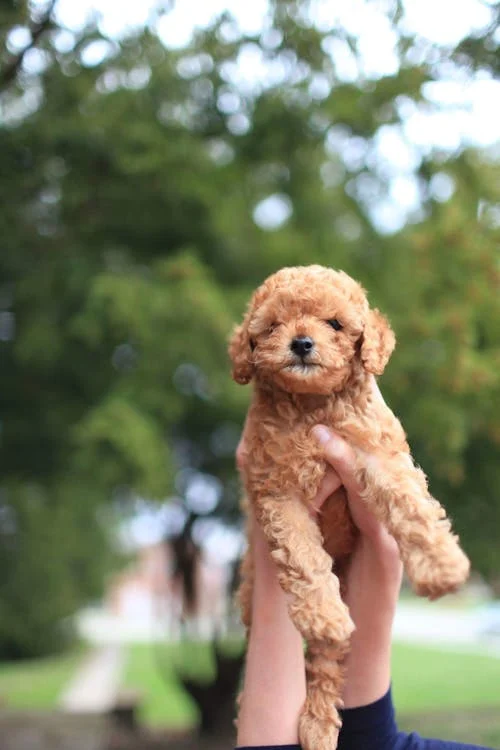Adopting a puppy is a significant decision that brings joy, excitement, and a fair share of responsibility. Among the myriad of dog breeds and hybrids available, the Teddy Bear Puppy has captured the hearts of many dog enthusiasts. With their endearing looks and affectionate nature, it’s easy to see why they’re so popular. If you’re considering adding a Teddy Bear Puppy to your family, here’s everything you need to know before making that commitment.

What is a Teddy Bear Puppy?
The term “Teddy Bear Puppy” doesn’t refer to a specific breed but rather a type of dog known for its cuddly appearance and gentle demeanor. Typically, Teddy Bear Puppies are hybrid dogs resulting from crossbreeding Shih Tzus and Bichon Frises, although other combinations like Shih Tzus and Malteses are also common. These mixes aim to combine the best traits of their parent breeds, resulting in a small, fluffy companion that resembles a teddy bear—hence the name.
Physical Characteristics
- Size: Teddy Bear Puppies are small dogs, usually weighing between 8 to 16 pounds when fully grown. They stand about 9 to 12 inches tall at the shoulder.
- Coat: They have a soft, fluffy coat that can be wavy or curly. Common coat colors include white, brown, black, and combinations thereof.
- Lifespan: With proper care, they can live anywhere from 12 to 16 years.
Temperament
One of the main reasons Teddy Bear Puppies are beloved pets is their friendly and affectionate nature. They are known to be:
- Loving and Affectionate: They enjoy cuddling and being close to their owners.
- Good with Children: Their gentle demeanor makes them suitable companions for families with kids.
- Adaptable: They can adjust well to different living environments, whether it’s an apartment or a house with a yard.
- Social: They generally get along well with other pets.
Health Considerations
While hybrid dogs can sometimes be healthier than purebreds due to increased genetic diversity, Teddy Bear Puppies can still be prone to certain health issues:
- Dental Problems: Small breeds are often susceptible to dental issues. Regular teeth brushing and dental check-ups are essential.
- Respiratory Issues: Due to their short snouts, they may experience breathing difficulties, especially in hot weather.
- Eye Conditions: Tear staining and other eye-related problems can occur.
- Joint Problems: Conditions like patellar luxation (dislocated kneecap) are possible.
Regular veterinary check-ups are crucial to monitor and maintain your puppy’s health.
Grooming Needs
Teddy Bear Puppies have high grooming needs due to their thick, often hypoallergenic coats:
- Regular Brushing: Daily brushing helps prevent matting and keeps their coat looking its best.
- Professional Grooming: Visits to a professional groomer every 6-8 weeks can help manage their coat and nail trimming.
- Ear Care: Their floppy ears can trap moisture, leading to infections. Regular cleaning is necessary.
- Bathing: Bathe your puppy every few weeks using a gentle, dog-specific shampoo.
Exercise Requirements
Despite their small size, Teddy Bear Puppies are moderately active:
- Daily Walks: Short walks or play sessions help keep them physically and mentally stimulated.
- Indoor Play: They adapt well to indoor living but still need interactive toys and activities.
Training and Socialization
- Positive Reinforcement: Use treats and praise to encourage good behavior.
- Early Socialization: Introduce them to different people, pets, and environments early on to develop a well-rounded temperament.
- Consistency: Be patient and consistent with training to establish good habits.
Compatibility with Your Lifestyle
Before adopting a Teddy Bear Puppy, consider how they fit into your life:
- Time Commitment: They thrive on attention and may develop separation anxiety if left alone for long periods.
- Financial Responsibility: Factor in costs for food, grooming, veterinary care, and supplies.
- Allergies: While often marketed as hypoallergenic, individual reactions vary. Spend time with the breed to ensure compatibility.
Final Thoughts
Adopting a Teddy Bear Puppy can be a rewarding experience filled with love and companionship. However, it’s essential to be fully prepared for the responsibilities that come with pet ownership. By understanding their needs and characteristics, you can ensure a happy and healthy life for your new furry friend.
Frequently Asked Questions
1. Are Teddy Bear Puppies hypoallergenic?
While Teddy Bear Puppies are often considered hypoallergenic due to their low-shedding coats, no dog is entirely hypoallergenic. They may produce fewer allergens than some breeds, but individuals with severe allergies should spend time with the breed before adopting.
2. How big do Teddy Bear Puppies get when fully grown?
They are a small breed, typically weighing between 8 to 16 pounds and standing about 9 to 12 inches tall at the shoulder when fully grown.
3. What is the average lifespan of a Teddy Bear Puppy?
With proper care, Teddy Bear Puppies can live between 12 to 16 years.
4. Do Teddy Bear Puppies get along with other pets?
Yes, they are generally social and can get along well with other dogs and even cats, especially when socialized from a young age.
5. How much exercise does a Teddy Bear Puppy need?
They require moderate exercise. Daily short walks and indoor play sessions are usually sufficient to keep them happy and healthy.

